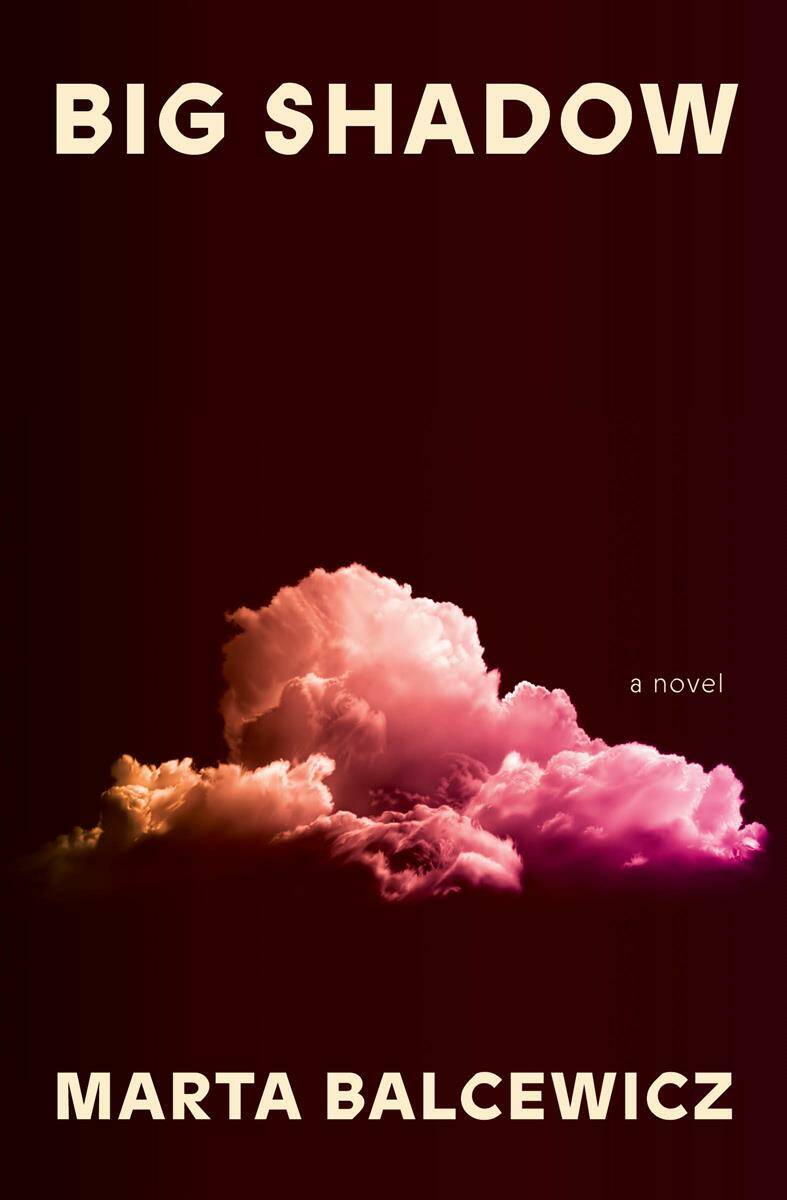Blind ambition
Narrator’s quest for purpose, identity at core of deft debut
Advertisement
Read this article for free:
or
Already have an account? Log in here »
To continue reading, please subscribe:
Monthly Digital Subscription
$1 per week for 24 weeks*
- Enjoy unlimited reading on winnipegfreepress.com
- Read the E-Edition, our digital replica newspaper
- Access News Break, our award-winning app
- Play interactive puzzles
*Billed as $4.00 plus GST every four weeks. After 24 weeks, price increases to the regular rate of $19.00 plus GST every four weeks. Offer available to new and qualified returning subscribers only. Cancel any time.
Monthly Digital Subscription
$4.75/week*
- Enjoy unlimited reading on winnipegfreepress.com
- Read the E-Edition, our digital replica newspaper
- Access News Break, our award-winning app
- Play interactive puzzles
*Billed as $19 plus GST every four weeks. Cancel any time.
To continue reading, please subscribe:
Add Free Press access to your Brandon Sun subscription for only an additional
$1 for the first 4 weeks*
*Your next subscription payment will increase by $1.00 and you will be charged $16.99 plus GST for four weeks. After four weeks, your payment will increase to $23.99 plus GST every four weeks.
Read unlimited articles for free today:
or
Already have an account? Log in here »
Hey there, time traveller!
This article was published 27/05/2023 (872 days ago), so information in it may no longer be current.
Some new writing is so refreshing and articulate, the reader will follow the author anywhere. Toronto’s Marta Balcewicz offers a first novel that fits that description; it is unusual but completely plausible and real.
Big Shadow is narrated by the main character, 17-year-old Judy, who has just finished high school and, as the novel begins, is trying to take seriously the work she has been assigned by her cousin Christopher and his pal Alex, both also 17. They are studying the clouds, trying to interpret what the clouds’ shapes mean, especially to the people watching them. But sooner or later, they will have to decide what they are going to do in the fall — attend university?
Balcewicz restricts the novel to a minimum of people living in or near a small city in 1998. Judy’s life seems simple, uncluttered by commitments. She had a boyfriend for a really short time and he has left town. She lives with her mother, who works at a library and has little social life — “she’d degenerated unnaturally quickly.”

Angela Lewis photo
Marta Balcewicz’s descriptive abilities are so impressive they downplay the importance of the plot.
One rainy summer day, Judy is on the protected steps of a university building when a man hurriedly joins her to get out of a sudden downpour. He speaks to her, and she encourages him. He’s tall and middle-aged. After a brief exchange, he seems to think she is bright. She tells him, “‘I’m going to start classes here in the fall.’”
His reaction: “‘Apply to transfer after your freshman year… Anywhere you want to go. Bring a reference letter from me to any department in the world and they’ll beg you to come. NYU, Columbia, Juilliard. They just need to hear my name… What do you say? Yeah? Let’s get you outta here.”
Judy finds out later that this fellow is Maurice Blunt from New York; he’s there for a summer to teach “Poetry and Rock ’n’ Roll: Verse in the Era of NYC Punk.” In her friend Alex’s library, she sees a copy of Blunt’s poetry collection, The River That Rhymes with Insane, Not Sex. She takes it away and reads it.
After deciding she will sign up for the class, Judy finds out it is full. On the first day, she shows up anyway. After a bit of awkwardness, she is allowed to settle in. Rather than be conspicuous about her knowing Blunt, she sneaks a note into his jacket pocket.
After the second class, she walks with him on campus and she says, “with a jokey scoff, ‘I think we should get away from this.’”
“He waved his hand around and made a gagging face. I hadn’t exactly meant getting out of town. I’d meant we should seek out a less public part of campus, away from this hub of student activity. But he went on, ‘New York is the place for you. You’ll feel at home’ — though he didn’t get more specific. ‘You can sleep on my couch,’ he said. ‘I’ve always got some artist friend crashing on it.’”
Judy tells the reader, “The implication that I made art, or at the very least had an artistic bent, like the other people who’d slept on his couch, struck me with unexpected force.”

Big Shadow
The title of the novel takes on new significance: The “big shadow” becomes New York City — a place she has never been, the one place she wants to visit, enticing her. Judy flies there that weekend, leaving her mother to think she is at her cousin’s country place. She is met by Maurice and taken to his “shockingly small” apartment.
Balcewicz presents an utterly realistic picture of the city, and Judy’s reaction to it. Judy has no chance to become a wide-eyed tourist. Maurice, somewhat of a has-been but still active, goes about his usual business, leaving Judy alone much of the time. But she does return to New York more than once; he has her do some camera work and, after seeing the result, tells her, “‘You’ve totally got an eye for film.’”
Will he become her lover? Whether he does or not ceases to seem important. It is Judy’s day-to-day life that dominates the narrative — one so well-expressed that what impresses the reader is not what happens, but how it is described.
Dave Williamson is the Winnipeg author of six novels, a collection of short stories, and a memoir.


